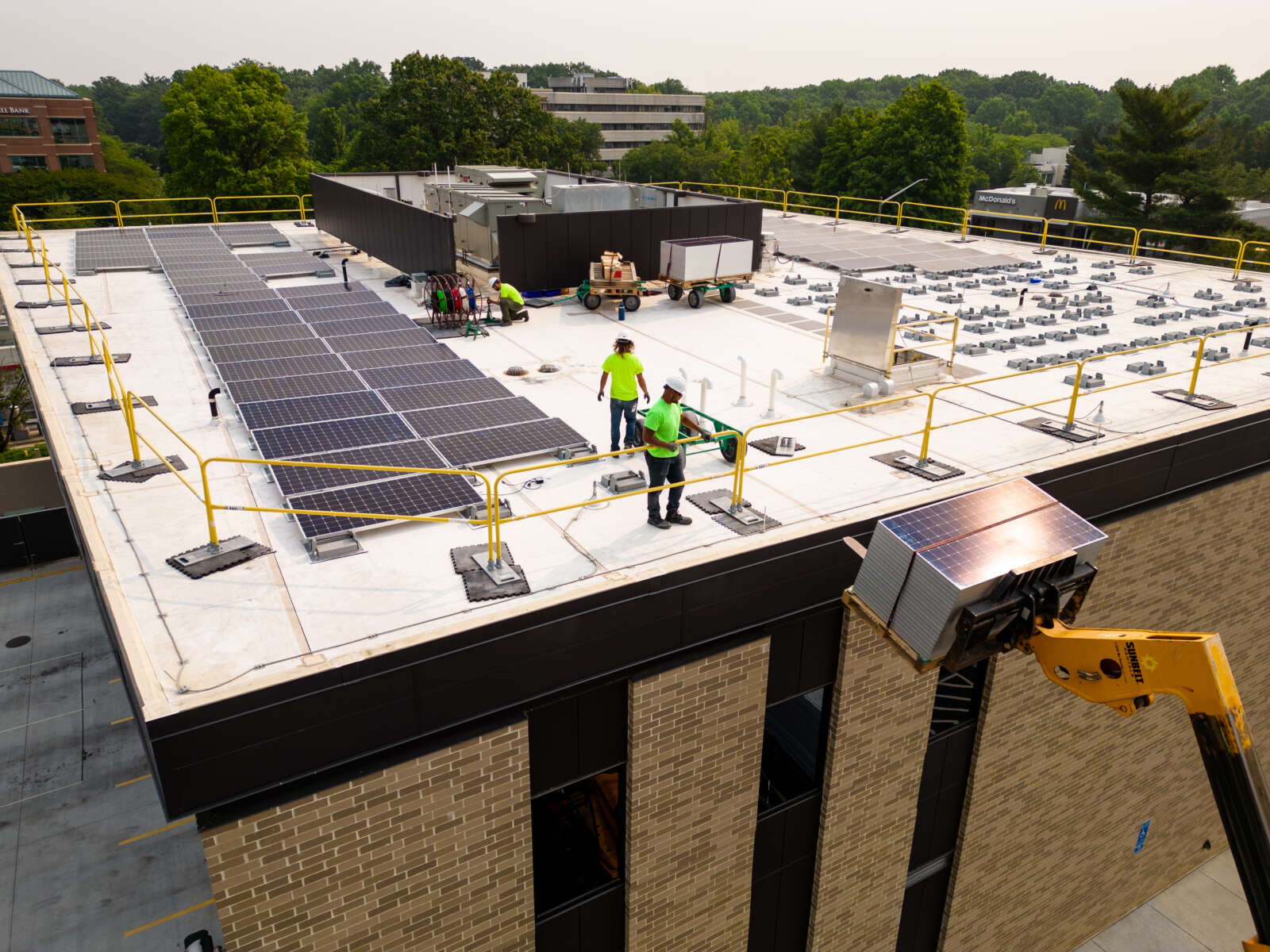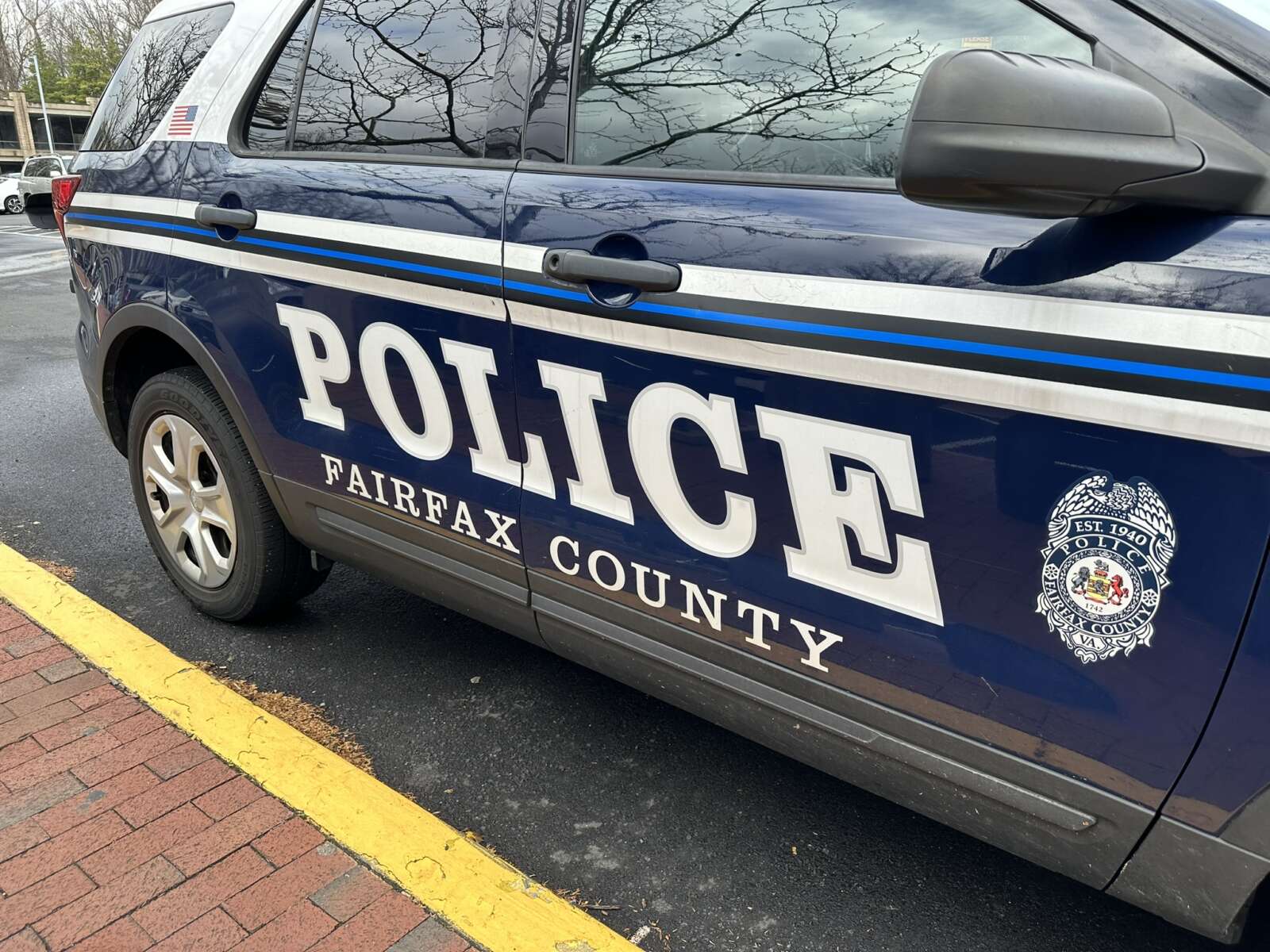
Fearing that new interconnection rules from Dominion Energy could derail its carbon reduction targets, the Fairfax County Board of Supervisors has asked Virginia’s utility regulator to step in.
In a near-unanimous vote, supervisors authorized Braddock District Supervisor James Walkinshaw on March 19 to send a letter asking the State Corporation Commission (SCC) to evaluate whether the new regulations create unnecessary hurdles for small renewable energy projects attempting to join the power grid.
Springfield District Supervisor Pat Herrity was the only abstention.
Dominion maintains that the new regulations are necessary to ensure grid reliability and the safety of field workers, but Fairfax County and other stakeholders statewide remain skeptical, contending that they make renewable energy projects more expensive and less feasible.
“In the Hunter Mill District, I have an elementary school [project] that has been complicated by this requirement,” Hunter Mill District Supervisor Walter Alcorn said. “It’s gonna be coming to the Board of Supervisors here the next couple of months, but this is creating a real impediment to doing what we need to do.”
Cost added for dark fiber lines
Dominion says it updated its interconnection requirements in response to the 2020 Virginia Clean Economy Act, which increased the capacity limit for non-residential solar developments from 1 to 3 megawatts (MW).
As a result, Virginia experienced a surge in solar, wind and other renewable energy installations that generate over 1 megawatt looking to connect to the power grid. To accommodate more and bigger energy sources, Dominion began requiring smaller energy projects from 250 kilowatts (kW) to 3 MW to install a high-speed fiber optic communication line — known as “dark fiber” or “direct trip transfer” (DTT) — between the project site and the nearest substation in 2022.
Dominion spokesperson Aaron Ruby says dark fiber is “more reliable” than cellular communication, which is prone to receiving mixed or missed signals. This could lead to unnecessary power outages if a solar facility’s power is mistakenly cut off due to a weak signal.
In addition, if there’s an emergency, dark fiber can more reliably signal the power source to turn off, ensuring line workers can fix the problem safely.
“So, this is not an issue of being ‘pro-solar’ or ‘anti-solar,'” Ruby said by email. “It’s simply about having the same basic safety and reliability standards for all solar systems that connect to the grid. The standards for medium-sized systems (i.e., 250 kW-3MW) are the same standards that apply to all of our solar facilities. These standards ensure the reliable operation of the grid and the safety of our line workers when they’re out in the field.”
Ruby noted that Dominion has one of the largest solar fleets in the country, and solar will be “by far the largest source of new power generation in Virginia over the coming decades.”
Yet, Fairfax County officials argue that no other utilities in the region place the entire cost burden of installing dark fiber lines on developers.
“Our staff has gone and looked — we couldn’t find any other utilities in the region that require this level of cost and expense,” Walkinshaw said during the board’s March 19 meeting. “So, are they necessary? Other utilities have determined that they aren’t, and as to who bears the cost, given that there are benefits both to the new interconnection and the owner of that interconnection and everyone else who utilizes the grid…we would not accept that they are all necessary.”
Requirement raises cost of solar projects
The county says roughly one-fourth of its planned solar projects are affected by Dominion’s dark fiber connection requirements. Since the county would be the main user of this energy, it could face an additional $3.5 million in costs from the energy producers, according to the board’s letter.
John Morrill, director of Fairfax County’s Office of Environmental and Energy Coordination, says the new rules threaten eight solar projects in the county’s pipeline, each over 250 kW and collectively totaling about 5 MW.
“Some of these buildings are still in design or construction, so there’s some uncertainty, but looking years into the future, we see a number of substantial solar projects that would be affected by this cost,” he said.
Typically, utilities like Dominion share the costs of system upgrades among their customers. However, in this instance, developers must bear the entire expense of the fiber optic connection.
Though he didn’t directly address the rationale for not distributing the cost of fiber-optic connections, Ruby says Dominion requires the dark fiber connection, and other utilities don’t, because it has “far more medium-sized solar systems” connected to its grid.
Dominion also uses higher-voltage lines than other utilities, which makes it harder for solar systems to “detect faults,” he says.
Morrill acknowledges the safety reasons for needing dark fiber, but he expressed skepticism of Dominion’s reasoning for making developers pay the entire cost of fiber optic connections and asked why less expensive cellular communication lines aren’t considered sufficient.
“Is this fiber optic connection needed for these smaller installations? That might be best answered or evaluated by an independent, third-party, non-utility expert, and then the State Corporation Commission can also weigh in on it,” Morrill told FFXnow. “And then, should that be paid by the customer or by the utility, mindful that Virginia’s policy is to enable widespread use of renewable energy resources?”
SCC reviewing dark fiber rules
Last year, the SCC tasked its staff with forming two working groups of solar industry stakeholders — including Dominion — to examine dark fiber’s necessity, cost sharing and transparency, among other topics.
In their January report to the SCC, stakeholders outlined strategies for managing the costs of linking renewable energy projects to the power grid. Among the suggestions were a tariff-based approach and a project-specific payment system.
In the tariff-based approach, the SCC would introduce a specialized category for renewable energy sources, such as solar or wind, where developers would pay a specific rate or tariff that would be determined by the size of their project.
Another approach would have the utility company initially pay for the necessary infrastructure upgrades, then recoup the costs by charging for each project based on its size and the extent of the upgrades.
The report also suggested that the SCC mandate utilities explain why dark fiber is needed for grid connections.
A case concerning Dominion’s rules for connecting to the power grid is currently before the commission. The period for public comments closed on March 22, and the SCC plans to conduct a public hearing soon.
After a hearing, the agency will issue a final decision, potentially introducing new regulations for the utility.
Recent Stories

The Blue Swallow Farm Foundation is holding an online auction to celebrate three years of helping students and educators in outdoor instruction. We invite you to participate in our online auction to support our mission of providing authentic, outdoor experiences for children. This event not only serves as a fundraiser for our initiatives but also as an opportunity for you to acquire unique items and experiences while making a positive difference in the lives of students and educators. You can preview auction items and then register as a bidder. Bidding will begin on May 4. The bids will close on May 8. Proceeds will assist us in helping educators build outdoor classrooms, developing high-quality curriculum materials and professional development workshops, sending teachers and students to environmental youth summits, and assessing the benefits of outdoor learning.

Good news, D.C. area. You can save money on your next home cleaning with Well-Paid Maids. It’s easy!
We offer a discount when you set up recurring cleans — and the discounts just increased this week!
For weekly cleans, get $30 off each cleaning.
Pedal with Petals Family Bike Ride
Join us on Saturday, May 11th and ride into spring during our Pedal with Petals Family Bike Ride. Back for its second year, Pedal with Petals is going to be bigger than ever. This year’s event will include both an
Encore Creativity for Older Adults at Capital One Hall
Encore Creativity for Older Adults is pleased to raise the curtain and welcome community members to its spring concert at Capital One Hall in Tysons, VA on May 4, 2024. The concert, which starts at 3 PM, will bring hundreds







